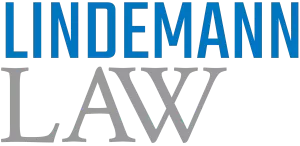- with readers working within the Utilities industries
- within Media, Telecoms, IT and Entertainment topic(s)
The European Markets in Crypto-Assets (MiCA) Regulation, a groundbreaking regulatory framework in the crypto industry, has officially come into play. Published in early June this year, MiCA's adoption followed an intricate legislative journey. It's shaping up to be the world's most comprehensive crypto regulatory framework, designed to safeguard investors, maintain market integrity, and drive innovation.
While MiCA directly impacts all European Economic Area (EEA) member states, its ripples will be felt worldwide, including in Switzerland and other non-EEA territories. In this article, we address pressing questions concerning MiCA's implications for non-EEA crypto-assets service providers (CASPs) eyeing the European market.
1. How does MiCA regulation impact Swiss and other third-country (non-EEA) CASPs?
CASPs are legal persons or other undertakings which offer crypto-assets services to clients on a professional basis. In case CASPs aim to provide MiCA-specified services to clients in the EEA, a MiCA-authorization from the competent authority is required. The MiCA-specified crypto-assets services, most of which are very similar with the regulated services under MiFID II are among others custody and administration, operation of a trading platform, exchange of crypto-assets, reception and transmission and execution of orders as well as providing advice or portfolio management. Subject to certain exemptions, CASPs engaging in any of those services targeting the European market are subject to the MiCA-authorization requirement.
However, in case non-EEA CASPs provide those services only at the own exclusive initiative of clients domiciled in the EEA (so-called reverse solicitation), CASPs are not subject to MiCA-authorization. Reverse solicitation is generally interpreted narrowly by ESMA and takes any kind of factual solicitation of the third-country firm into account (e.g. by way of press releases, advertising on internet, brochures, phone calls or face-to-face meetings). To sum up, CASPs intending to rely on the reverse solicitation exemption shall carefully assess whether no factual solicitation takes place as well as respective documenting proof on a service-basis is in place.
2. What obligations have CASPs under MiCA regulation?
MiCA regulation introduces rigorous obligations for CASPs. These obligations include obtaining authorization, meeting fit and proper criteria, adhering to governance requirements, maintaining minimum capital, and ensuring safeguards. Governance obligations encompass suitability requirements for management body members and the need for effective systems, procedures, and arrangements. Authorized CASPs can operate across the EEA through local branches or by passporting services.
Certain institutions already authorized in the EEA, such as credit institutions, investment firms, alternative investment fund managers, UCITS managers, and electronic money institutions, may offer specific crypto-asset services via notification to the competent authority.
MiCA establishes a harmonized business conduct framework for CASPs, mirroring MiFID II principles. This includes the duty to act honestly, fairly, and in the best interests of clients and prospects. Clear, fair, and non-misleading communication is required, with comprehensive disclosure of transaction risks and environmental impacts. Specific requirements tailored to crypto-asset services must also be followed.
MiCA enforces rules to protect market integrity and prevent market abuse, addressing insider information treatment, public disclosure, and prohibition of insider trading and market manipulation.
3. What is the timeline for the implementation of MiCA?
MiCA became effective on June 29, 2023, with a transitional regime. Rules concerning stablecoins (asset reference tokens and e-money tokens) take effect on June 30, 2024, and rules concerning other tokens and CASPs on December 30, 2024. EEA countries may opt out of the transitional regime or shorten its duration. CASPs offering services before June 29, 2023, are expected to continue until December 30, 2024.
Preparing for MiCA regulation entails assessing its scope, applying for authorization, and integrating MiCA requirements into your systems and processes.
4. How can non-EEA CASPs become MiCA-compliant?
Non-EEA CASPs must evaluate their activities within the EEA and their potential impact under MiCA's territorial scope. If authorization is required, steps include:
- Understanding regulatory requirements
- Establishing a local EEA presence
- Implementing internal governance procedures
- Reviewing and enhancing security systems
- Meeting capital requirements
- Preparing information disclosures
- Applying for authorization
- Staying informed about regulatory updates
These steps provide a roadmap for MiCA regulation compliance but should be adapted to specific service types.
5. What are the sanctions for non-compliance with MiCA regulation?
Non-compliance with MiCA regulation can lead to administrative penalties, including public identification of the offender, cease orders, and fines. It may also expose companies to civil lawsuits from affected parties. Moreover, non-compliance can harm a company's reputation and erode trust.
How can we support you:
With MiCA regulation now in effect, non-EEA CASPs must assess its impact on their operations. Timely action and compliance are crucial for business continuity. We offer comprehensive support, leveraging our European network and regulatory expertise to guide your crypto project through MiCA's challenges and opportunities. Providing tailored legal, regulatory, and tax advice, our services encompass regulatory strategies, jurisdictional analysis, registration and licensing support, gap analysis, and organizational adaptation guidance.
Originally Published 02 October 2023
The content of this article is intended to provide a general guide to the subject matter. Specialist advice should be sought about your specific circumstances.


